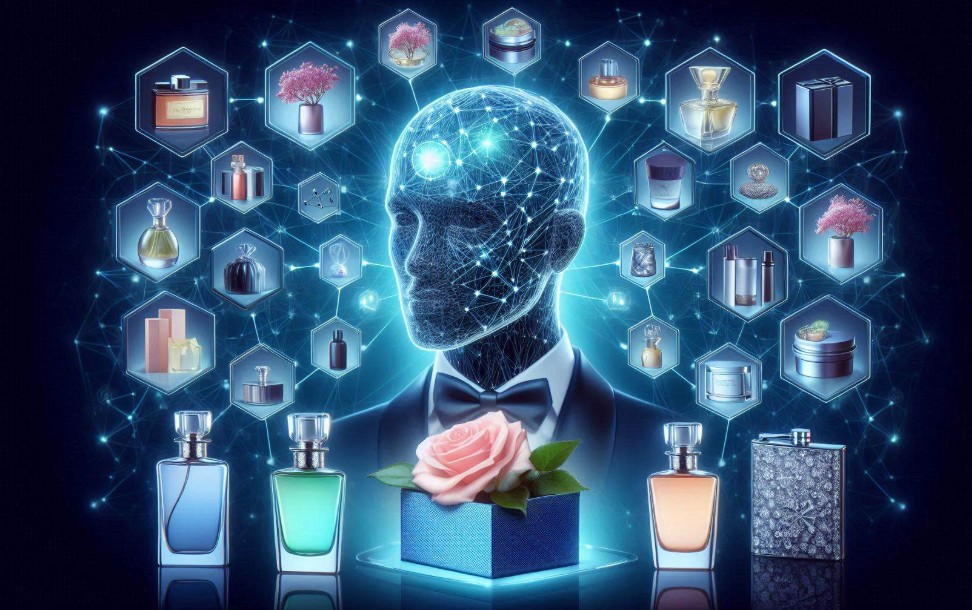In recent years, there has been a significant advancement in the field of Artificial Intelligence (AI) and Augmented Reality (AR). These technologies have become increasingly popular and have the potential to enhance virtual experiences in various fields such as gaming, education, healthcare, and...
How Neural Networks Transform Perfume Fragrance Selection

Advancements in technology are opening new doors in the world of scent formulation. With the help of intelligent systems, the process of blending aromas is being taken to new heights. These systems can now analyze and predict combinations that resonate with specific preferences, offering an entirely new approach to designing fragrances.
Through data-driven techniques, the possibility of crafting personalized aromas has never been more attainable. By understanding patterns and preferences, these advanced tools assist in determining which elements work best together. The result is a tailored experience that appeals to the senses in ways traditional methods may not have achieved.
As the fragrance industry evolves, the integration of smart technology offers exciting potential for innovation. This evolution not only enhances creativity but also ensures that consumers can access products suited to their individual tastes with remarkable precision.
The Role of AI in Fragrance Design
In recent years, intelligent systems have transformed the way fragrances are developed. These advanced tools bring an innovative approach to designing new compositions, making the process faster and more accurate. By utilizing vast amounts of data and complex algorithms, AI can assist in crafting fragrances that align with individual preferences and emerging trends.
Data-Driven Innovation in Scent Composition
AI technologies analyze massive datasets that include historical information about scent combinations, consumer feedback, and environmental factors. This data enables these systems to predict which ingredients will work harmoniously, suggesting novel pairings that might have been overlooked by human designers. As a result, the boundaries of creativity are expanded, opening up opportunities for new and exciting aromas.
Personalization and Consumer Experience
Personalization is another significant advantage brought by AI in fragrance creation. By understanding patterns and preferences, these systems allow for the design of tailored aromas that suit individual tastes. Consumers now have the ability to experience a scent that is uniquely theirs, based on their preferences and desires. This shift is revolutionizing the fragrance industry, making it more interactive and consumer-centered than ever before.

How Algorithms Identify Unique Scent Profiles
Advanced computational techniques allow for the analysis and identification of specific patterns in aroma combinations. By processing vast amounts of data, algorithms can determine which elements form harmonious blends and which combinations stand out. This ability to recognize distinctive profiles leads to the creation of individualized and novel fragrance experiences.
Analyzing Ingredient Relationships
Through complex calculations, algorithms evaluate how different ingredients interact with one another. This includes studying their chemical properties, how they react over time, and how they are perceived by the human sense of smell. By comparing thousands of potential blends, algorithms can pinpoint the most promising combinations that produce unique and appealing results.
Learning from Data and Consumer Preferences
Algorithms continuously refine their understanding by processing data collected from consumer preferences and historical fragrance trends. This allows them to make informed predictions about which profiles will resonate with users. As the system gathers more information, it becomes increasingly adept at selecting and suggesting blends that are likely to be well-received by a diverse audience.
The Future of Personalization in Perfume Creation
The next phase in fragrance design is all about offering consumers a more tailored experience. As technology advances, the ability to craft unique, individualized aromas is becoming more accessible. Future developments in data analysis and machine learning will empower customers to personalize their scent profiles like never before, offering a more intimate connection to the products they wear.
Customized Aromas Based on Individual Preferences
With the help of advanced algorithms, future fragrance creation will enable users to input specific preferences, such as notes they enjoy or particular moods they want to evoke. This personalized data will allow designers to deliver custom blends that reflect individual tastes, giving people more control over the aromas they wear daily.
Integrating Advanced Technologies for Better Precision
Technological innovations, such as wearable devices and mobile apps, will further refine personalization. These tools will collect real-time data on environmental factors, body chemistry, and personal preferences, helping to fine-tune and adjust scent combinations to suit individual needs. As technology evolves, the potential for truly bespoke fragrances will be limitless, changing the way people experience and interact with aromas.



